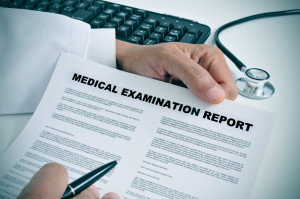Earlier this month, jurors in Detroit found homeowner Theodore Wafer guilty of second-degree murder, manslaughter, and a felony firearm charge for fatally shooting 19-year-old Renisha McBride when she banged on his door after crashing her car. Throughout Wafer’s trial, a variety of expert witnesses testified by explaining the issues that were critical in helping jurors understand how the fatal incident transpired.
Homeowner in Detroit Porch Shooting Guilty of Murder
Last November, 19-year-old Renisha McBride approached the home owned by Theodore Wafer at around 4:30 AM and began banging on his door. Wafer, who lives alone, responded to the loud pounding on his door by getting his shotgun, approaching the doorway, and eventually firing a shot that killed McBride. During testimony, a visibly shaken Wafer claimed that he had grabbed the gun out of fear for his safety, and he did not know it was loaded before it discharged. Wafer also testified that the shotgun discharged accidentally, reinforcing his argument that he did not mean to kill McBride.
Prosecutors argued that Wafer’s actions were unreasonable and unnecessary considering the level of threat that McBride presented, and Wafer’s defense team countered that his actions were driven by fear of being attacked and that he did not intentionally discharge the gun. After nearly two days of deliberations, jurors agreed with the prosecution and convicted Wafer of second-degree murder, manslaughter, and felony firearm usage. Both parties relied heavily on expert witnesses familiar with gun safety, forensic pathology, and police investigations during the trial.
Expert Witnesses Key to McBride Murder Verdict
During Wafer’s trial for the murder of Renisha McBride, both parties leaned heavily on expert witnesses to support, or refute, Wafer’s recollection of the events and to interpret the evidence gathered by police at the scene. Prosecutors, attempting to demonstrate that Wafer fired intentionally in an unreasonable response to the perceived threat, called the following:
- Shawn Kolonich, a forensic firearms expert witness, testified that the 12-gauge shotgun used by Wafer was in good condition and did not have any defect that would have caused it to fire accidentally. Part of Wafer’s testimony was his claim that he had not intentionally fired the gun, but Kolonich’s expert opinion indicated that it is unlikely that the gun misfired. Kolonich further testified that the gun’s safety mechanism had been released, which enabled Wafer to fire it.
- Detective Stephen Gurka, lead investigator in charge of the case, offered expert testimony on the evidence gathered at the scene of McBride’s death. Det. Gurka testified that the police found no evidence of attempted entry into Wafer’s home, and nothing to suggest that a second individual was attempting to enter through the home’s side door – a claim Wafer made to reinforce his perception of the threat. Gurka’s work was criticized by defense attorneys who argued the police investigation was botched, resulting in tainted evidence.
- Dr. Kilak Kesha, MD was the final prosecution expert witness. Dr. Kesha performed the autopsy on Renisha McBride and testified that he did not observe swelling or injuries on her hands – supporting the prosecution’s claim that she was not the aggressor.
In response, the defense presented two expert witnesses to support Wafer’s claim:
- Dr. Werner Spitz, MD is a widely recognized expert on forensic pathology, and he directly contradicted Dr. Kesha’s assessment that McBride did not have wounds on her hands. Dr. Spitz testified that there was evidence of bruising on McBride’s hands that would suggest she banged violently on Wafer’s door. Dr. Spitz also testified that McBride was severely intoxicated at the time, an assessment Dr. Kesha agreed with. Prosecutors challenged Dr. Spitz, getting him to admit he had based part of his testimony on Wafer’s own statements rather than the condition of McBride’s body.
- David Balash is a firearms expert witness who was called to testify about the condition of Wafer’s screen door at the time he fired the shot that killed McBride. Mr. Balash testified that the angle of the gun at the time it fired suggested that the screen door was dislodged from the force of McBride’s banging. Balash also testified that Renisha was very close to the door – less than a foot – at the time she was shot.
Wafer’s guilty verdict is not necessarily an indication that his expert witnesses were unconvincing. Despite evidence that McBride aggressively banged on his doorway, jurors determined that Wafer’s response was unnecessary and sufficiently out of line to justify a murder conviction. Expert testimony in support of the prosecution demonstrated flaws in Wafer’s story, and contributed to a guilty verdict.













